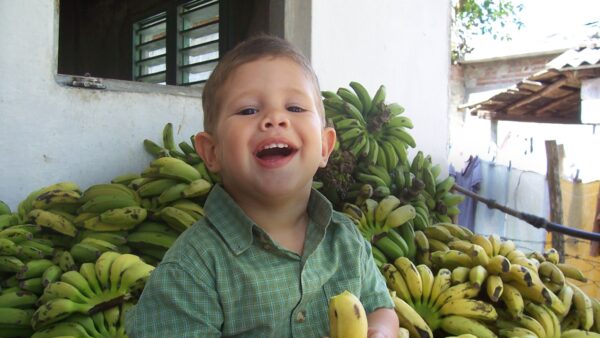South America’s unparalleled ability to produce food places it in a global power position, yet it hasn’t taken real advantage of its strengths … yet.
At the recent World Agri-Tech Summit South America in São Paulo, Brazil, Renata Miranda, the Secretary of Innovation, Sustainable Development, and Cooperation for the Brazilian Ministry of Agriculture, delivered a compelling presentation titled “Positioning South America as a Sustainable Food Superpower with Global Impact”. Her talk highlighted her personal vision for the pivotal role South America can play in transforming the global food value chain through sustainability and innovation.
Miranda began by highlighting the paradoxes that define the current state of South American agriculture. “Latin America is one of the biggest superpowers in food production,” she said. Yet, she pointed out the stark contrast: “this region also lives with some of the worst rates of hunger and structural poverty.”
According to Miranda, Latin America produces around 30% of the world’s food, but this abundance coexists with persistent and significant food insecurity driven by poverty.
Food access is not the only paradox. Miranda also emphasized that, although South America boasts one of the highest agricultural productivity rates globally, growing at a rate of 4% a year, which is double the world average, the region still suffers from low levels of technology adoption and high functional illiteracy among many of its agricultural producers.
Miranda noted that South America’s economic volatility further complicates its agricultural potential. Even though countries like Brazil, Argentina, Chile, Ecuador, and Peru are major food exporters, some of these countries have historically faced economic crises, currency devaluation, and inflation. “So, why do these great superpowers in food production in agrarian economies fail to break this duality?” she asked.
Miranda called for a reevaluation of the region’s geopolitical power, underscoring the essential role of food in global dynamics.
“Geopolitical power is based on energy, water and food. We can’t fool ourselves about how powerful food is,” she stated. Drawing a historical parallel, she remarked, “Since ancient times, power was held by whoever had the key to the grain cellars, not by who produced the most.”
With the global population growing and changing diets and demand for diverse food products, Miranda sees immense opportunities for South America. The region’s rich biodiversity, extensive fertile lands, and high productivity position it uniquely to meet these demands. However, she questioned why these opportunities are not being fully capitalized upon.
“Do you think this region is going through a time of crisis or opportunity? And why aren’t we taking advantage of this opportunity?” she challenged the audience.
Miranda underscored the importance of innovation in addressing these challenges and seizing opportunities. She highlighted Brazil’s leadership roles in international forums like the G20, BRICS, and the upcoming COP30 as platforms to influence global agricultural policy.
“We have to seize this power of influence and generate wealth,” she declared. However, she cautioned against accepting asymmetric behaviors and colonial mindsets that hinder progress. “As long as we accept asymmetrical behavior between countries… we won’t break this pattern,” she warned.
In her closing remarks, Miranda issued a call to action, inviting the audience to embrace innovation as a pathway to sustainable development.
“I invite all of you, as you are protagonists, to act on this central role… to ensure that innovation is indeed a path to sustainable development,” she urged.
She stressed the importance of cooperation and the need for autonomy, citizenship, and sovereignty to harness the geopolitical power of food, “because that will allow us to take ownership of the great geopolitical power that food produces, and then we will be able to prove that sustainability can have a global impact.”
Miranda’s presentation was not just a reflection on the current state of South American agriculture but a visionary call for leveraging the region’s potential through innovation and sustainable practices. Her emphasis on geopolitical power, historical context, and the urgent need for a paradigm shift resonated deeply with the audience, setting a bold agenda for the future of agriculture in South America. As the Summit progressed, her words provided a framework for discussions on how to position South America as a leader in the global food value chain, ensuring that sustainability and innovation drive the region’s impact on the world stage.












